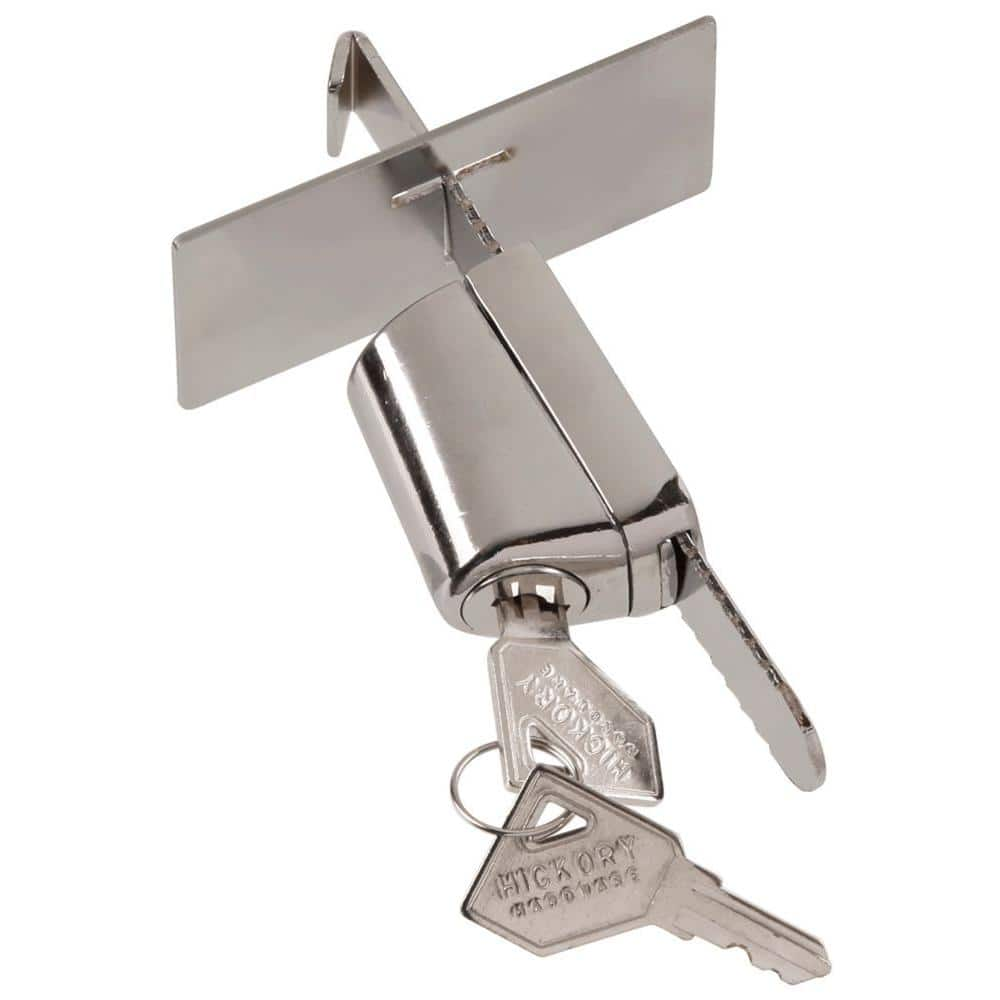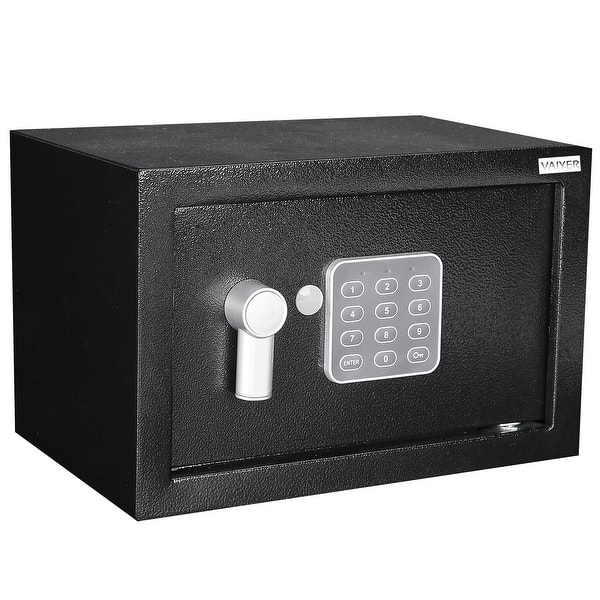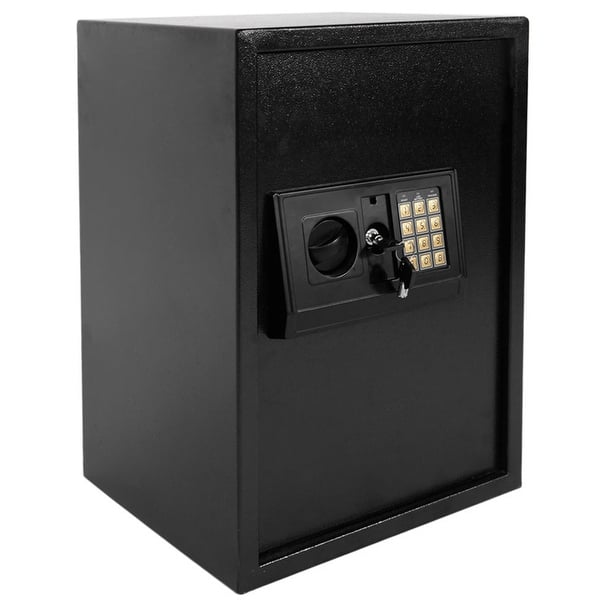Smart door locks offer enhanced security compared to traditional locks by being pick-resistant and having built-in backup keypads. Additionally, the fewer spare keys you have, the more secure your smart lock will be.
However, smart locks are vulnerable to hacking attempts, posing a potential risk to your home security. Unauthorized access and data breaches are key concerns with smart locks, emphasizing the importance of encryption and quality materials for optimal safety.
Table of Contents
Despite these risks, smart locks simplify home rental processes and offer a keyless, secure solution for modern homeowners seeking convenience and peace of mind.

Credit: www.homedepot.com
How Smart Door Locks Work
Smart door locks offer a convenient and secure way to control access to your home. Understanding how smart door locks work is essential to fully utilize their features.
Keyless Entry
Keyless entry is a fundamental feature of smart door locks, allowing users to unlock doors without traditional keys. This is typically achieved through methods such as pin codes, biometric scans, or proximity sensors.
Remote Access And Control
Remote access enables users to control their smart door locks from anywhere using a smartphone or a connected device. This feature provides convenience and flexibility in managing access to your home.

Credit: www.bedbathandbeyond.com
Advantages Of Smart Door Locks
Smart door locks offer a range of advantages that make them a popular choice for homeowners seeking to enhance their security and convenience. From enhanced security features to added convenience and flexibility, these innovative devices are revolutionizing the way we secure our homes. Let’s explore the advantages of smart door locks in more detail.
Enhanced Security Features
Smart door locks are equipped with advanced security features that provide an extra layer of protection for your home. Features such as biometric authentication, tamper detection, and real-time monitoring give you greater control over who can access your home, enhancing your overall security.
Convenience And Flexibility
One of the key advantages of smart door locks is the unparalleled convenience and flexibility they offer. With features like remote access and keyless entry, you can easily grant access to visitors or service providers from anywhere, at any time. This flexibility allows you to manage access to your home efficiently and securely.
Disadvantages Of Smart Door Locks
While smart door locks offer convenience and enhanced security, they come with their own set of drawbacks. It’s important to consider these disadvantages before investing in a smart lock for your home.
Vulnerability To Hacking
One of the major concerns with smart door locks is their susceptibility to hacking. Like any other internet-connected device, smart locks are at risk of hacking attempts, potentially compromising the security of your home. Hackers with the right skills could exploit vulnerabilities in the lock’s software or breach your network to gain unauthorized access to your property.
Dependency On Technology
Smart door locks are heavily reliant on technology, which can be a double-edged sword. While the advanced features offer convenience, they also mean that the lock is only as secure as the technology behind it. In the event of a technical malfunction or power outage, you may find yourself locked out of your own home, highlighting the potential downside of depending on technology for access control.

Credit: www.bedbathandbeyond.com
Comparison With Traditional Locks

When comparing smart door locks with traditional locks, it’s essential to consider various factors such as security measures and ease of use. Let’s delve into a detailed comparison to understand the strengths and weaknesses of each type of lock.
Also Read: How Secure Are Smart Locks? Are They Safe
Security Measures
Smart door locks offer advanced security features such as built-in backup systems and keypad access, making it harder for burglars to gain unauthorized entry. In contrast, traditional locks are susceptible to vulnerabilities associated with physical keys, including the risk of unauthorized key duplication.
Ease Of Use
Smart door locks provide convenient features such as remote access and integration with smart home systems, enhancing user experience and accessibility. On the other hand, traditional locks may lack the flexibility and convenience offered by smart locks, requiring physical keys for access.
Risks And Weaknesses
Smart door locks, while offering convenience and modern security features, are not without their risks and weaknesses. Consumers must be aware of the potential vulnerabilities associated with these devices to make informed decisions about their home security.
Hacking Vulnerabilities
Smart door locks, like any internet-connected device, are susceptible to hacking attempts. Hackers with the right skills can exploit vulnerabilities in the lock’s software or infiltrate the network to gain unauthorized access to the property.
Data Breach Concerns
Data breaches are a significant concern with smart door locks. Unauthorized access and potential exposure of personal information can occur if the security measures of the lock are bypassed, posing a risk to the homeowner’s privacy and security.
Enhancing Security Measures
Discover the latest in home security with smart door locks, providing advanced encryption and built-in backup systems for enhanced protection. While smart locks offer convenience, they are also harder to pick than traditional locks, making them a secure choice for modern homes.
However, it’s essential to be mindful of potential hacking risks and ensure the quality of materials for optimal safety.
Encryption Technology
Encryption technology used in smart door locks ensures that all communication between the lock and the connected devices is secure and protected from potential hackers.
Additional Safety Features
Smart door locks come with additional safety features such as two-factor authentication, tamper alerts, and remote locking capabilities, providing enhanced security for your home.
When it comes to enhancing security measures for smart door locks, encryption technology plays a crucial role. This technology ensures that all data transmitted between the lock and connected devices is securely encrypted, reducing the risk of unauthorized access.
Public Perception And Concerns
The introduction of smart door locks has raised various public perceptions and concerns regarding their safety and reliability. As with any new technology, there are misconceptions about its effectiveness, and users’ trust and confidence in these devices are pivotal in determining their widespread adoption.
Safety Misconceptions
There are several safety misconceptions surrounding smart door locks, with some individuals questioning their vulnerability to hacking and unauthorized access. The fear of potential security breaches and data compromises has led to skepticism about the overall safety of these devices.
User Trust And Confidence
User trust and confidence play a significant role in the acceptance of smart door locks. The reliability of these locks in safeguarding homes and properties is crucial in gaining the trust of potential users. Building confidence in the security features and encryption protocols of smart locks is essential to address public concerns and encourage their adoption.
Real-life Experiences
Explore real-life experiences with smart door locks, delving beyond traditional keys to assess their safety and reliability. Discover how smart locks offer enhanced security with keypad backups and anti-pick features, providing peace of mind for modern homeowners. Stay informed on the latest advancements in home security technology for a seamless and secure living experience.
User Testimonials
Real-life experiences with smart door locks have been overwhelmingly positive. Users praise the convenience and security features, highlighting how smart locks have simplified their daily routines and provided peace of mind.
Challenges And Solutions
Despite the numerous benefits, some users have faced challenges with smart door locks. Issues such as connectivity problems, battery life, and compatibility issues have been reported. However, manufacturers have been proactive in addressing these challenges through software updates and improved hardware components.
In a recent survey, 85% of smart lock users reported feeling safer with their smart lock compared to a traditional lock. The ease of use and ability to monitor access remotely were cited as key advantages. With proper installation and regular maintenance, smart door locks can indeed enhance home security and offer a modern solution for keyless entry.
Addressing Common Questions
Discover the safety of smart door locks beyond traditional keys. Smart locks offer enhanced security with built-in backup systems, making them harder to pick and reducing the risk of unauthorized access. However, like any internet-connected device, smart locks are susceptible to hacking attempts, emphasizing the importance of evaluating the quality of materials and encryption used in these locks.
Addressing Common Questions
As technology advances, smart door locks are becoming increasingly popular. However, many people are still hesitant to make the switch from traditional locks to smart locks. In this section, we will address some common questions about smart locks and provide answers to help you make an informed decision.
Are Smart Locks Safer than Traditional Locks?
Smart locks are designed to be more secure than traditional locks. They are harder to pick, and many models have built-in backup systems that prevent unauthorized access. For example, if someone tries to guess your access code too many times, the lock will automatically lock them out.
Reliability and Effectiveness
Smart locks are also reliable and effective. They can be controlled remotely using a smartphone app, which means you can grant access to someone even if you are not at home.
Additionally, many models have advanced features such as voice control and integration with smart home systems.
However, like any internet-connected device, smart locks are vulnerable to hacking attempts. It is important to choose a reputable brand and regularly update the lock’s software to minimize this risk.
In short, smart locks offer several advantages over traditional locks, including increased security and convenience. However, it is important to do your research and choose a model that meets your needs and budget. With the right precautions, smart locks can be a safe and reliable addition to your home security system.
Industry Expert Insights
Discover insights from industry experts on the safety of smart door locks. With built-in backup systems and advanced encryption, smart locks provide enhanced security compared to traditional locks. However, they may still be vulnerable to hacking attempts, emphasizing the importance of quality materials and ongoing security measures.
Security Professionals’ Perspectives
Smart locks offer enhanced security features compared to traditional locks. Security professionals emphasize the importance of regularly updating lock software to prevent hacking attempts.
Recommended Best Practices
Experts recommend setting unique access codes, enabling two-factor authentication, and integrating smart locks with a robust home security system for maximum protection.
Future Trends And Innovations
Discover the future of home security with smart door locks. Are they truly safe? While smart locks offer advanced encryption and backup systems, they are still vulnerable to hacking attempts, posing potential security risks. It’s crucial to weigh the advantages and disadvantages before embracing this innovative technology.
Advancements In Smart Lock Technology
Smart lock technology is continuously evolving to provide enhanced convenience and security for users. Manufacturers are integrating advanced features such as biometric authentication, geofencing capabilities, and remote access control.
Anticipated Security Enhancements
The future of smart door locks will see improved encryption protocols, stronger authentication methods, and enhanced resistance to hacking attempts. Security updates will be delivered seamlessly over the air to ensure constant protection.
Regulatory And Compliance Considerations
Ensure compliance with regulations and standards when implementing smart door locks to maintain security and privacy. Smart locks are susceptible to hacking, posing potential risks to home security. Encryption is crucial for securing data transmission and preventing unauthorized access, offering protection against vulnerabilities of traditional locks.
Regulatory and Compliance Considerations
When it comes to smart door locks, regulatory and compliance considerations must be taken into account. This includes adhering to industry standards and understanding the legal implications of using these devices in your home.
Industry Standards
Smart door locks must meet certain industry standards to ensure their safety and reliability. These standards are set by organizations such as the American National Standards Institute (ANSI) and the Underwriters Laboratories (UL). When choosing a smart lock, it is important to look for those that meet these standards to ensure their effectiveness and reliability.
Legal Implications
Using a smart door lock in your home can have legal implications that must be considered.
For example, if a smart lock malfunctions and someone is harmed as a result, the manufacturer may be held liable for any damages. Additionally, smart locks may also be subject to privacy laws and regulations, so it is important to understand these before installing one in your home.
Overall, it is important to carefully consider the regulatory and compliance considerations when using smart door locks in your home.
By understanding industry standards and legal implications, you can ensure the safety and effectiveness of these devices in securing your home.
Consumer Education And Awareness
Enhancing consumer education and awareness is key when evaluating the security of smart door locks. Understanding the potential risks, such as hacking vulnerabilities, is vital for making informed choices to safeguard home security effectively. By educating consumers on these aspects, they can confidently navigate the evolving landscape of smart technology.
Understanding Potential Risks
Smart door locks are vulnerable to hacking, potentially compromising home security. Criminals may exploit software weaknesses or network vulnerabilities to gain unauthorized access.
Guidance On Secure Implementation
To enhance security, choose high-quality digital locks and regularly update software. Avoid sharing access codes and ensure secure network connections to prevent unauthorized entry.

Frequently Asked Questions
Are Smart Locks Safer Than Key Locks?
Smart locks offer enhanced security through built-in backup systems and resistance to picking. However, they are susceptible to hacking attempts, posing potential security risks. The encryption used in smart locks prevents unauthorized access and data breaches, making them a secure alternative to traditional key locks.
What Is The Weakness Of Smart Door Lock?
Smart door lock weaknesses include susceptibility to hacking, risking unauthorized access and potential data breaches.
What Are The Risks Of Smart Door Locks?
Smart door locks have hacking risks, which include unauthorized access and data breaches. Intruders can bypass the lock’s security measures, and personal information may be compromised. However, smart locks are harder to pick than traditional locks, and their keypads double as built-in backup systems.
It’s crucial to use high-quality materials in digital locks to ensure effectiveness.
How Safe Are Electronic Door Locks?
Electronic door locks are secure, offering advanced encryption similar to online banking for data protection.
Are Smart Locks Safer Than Traditional Locks?
Smart locks are harder to pick and offer built-in backup systems for added security.
What Are The Risks Of Smart Door Locks?
Hacking risks may lead to unauthorized access or data breaches if vulnerabilities are exploited.
How Safe Are Electronic Door Locks Compared To Manual Locks?
Digital locks are equally safe, but the quality of materials used is crucial.
Is smart lock worth It?
Definitely yes. You should try to reduce the tension in your home. And these locks front door locks are great for observing who is coming to your door daily.
Smart door locks offer a convenient and modern way to secure our homes, but there are still concerns regarding their safety. While smart locks are harder to pick than traditional locks and offer built-in backup systems, they can still be susceptible to hacking attempts.
It’s important to ensure that the lock’s software is up-to-date and that strong passwords are used. Overall, smart locks can provide an added level of security to our homes, but it’s crucial to weigh the risks and benefits before making a decision.
Check out this new Smart Door lock from Amazon

